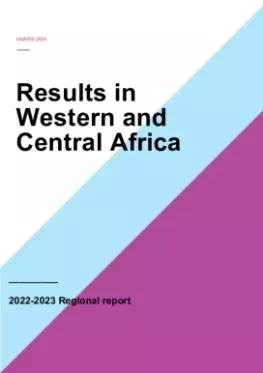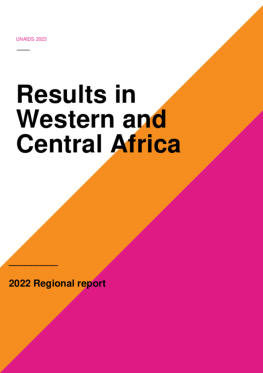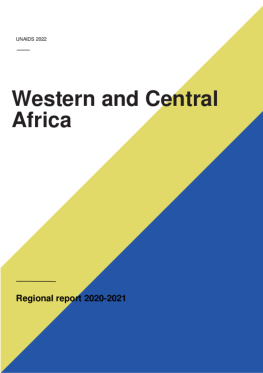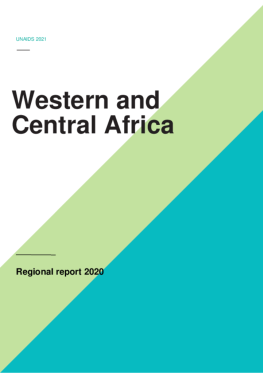In 2024, with the Joint Programme’s support, the western and central Africa region made notable achievements in expanding HIV prevention, treatment and care services. Special efforts focused on closing gaps, especially in high-burden countries for targeted HIV prevention programmes through country prevention roadmaps, South-South collaboration and other capacity building particularly for youth and key populations-friendly HIV services increasingly more integrated with sexual and reproductive health and other interventions to promote better gender equality for more effective HIV response. Over 9.5 million learners in 11 countries were reached with comprehensive sexuality education through technical support and capacity-building.
Western and Central Africa
Triple elimination of vertical transmission of HIV, hepatitis B and syphilis and early infant detection, was an important focus of support to countries. In this context, triple elimination capacities of personnel from 16 countries in this region and in North Africa were strengthened. Access to HIV testing expanded particularly for exposed children, adolescents and pregnant women, including through family HIV index testing and capacity-building on WHO testing guidelines. Point-of-care platforms for early infant diagnosis complimented these efforts.
The rights of key populations, women and girls and people living with HIV remain a high priority for Joint Programme’s support. This included collaboration with the African Regional Judges Forum to advance non-discrimination and more equal and inclusive access to HIV services for marginalized populations, cross-country knowledge sharing for removal of laws criminalizing HIV aspects, legal literacy capacity building, documentation and support to communities affected by HIV-related human rights violations.
Community leadership, -led HIV responses and -monitoring including a roadmap and country action plans in 13 countries were boosted through the capacity-building of and active engagement of community networks in various initiatives and decision-making fora as well as a new regional association of adolescents and young people living with HIV.
Support for HIV response sustainability and domestic and international resource mobilization, including in preparation for donor transition, was also central to the Joint Programme’s support to the region. Continued advocacy and technical guidance led to better integration of HIV services under broader health schemes, capacities for social contracting of HIV services in at least seven countries and on legal and policy processes for faster access to medicines in low- and middle-income countries. Other Joint Programme efforts focused on sustaining essential HIV and health services to save lives in humanitarian settings in various countries and 13 countries implemented interventions for key populations in humanitarian settings.






